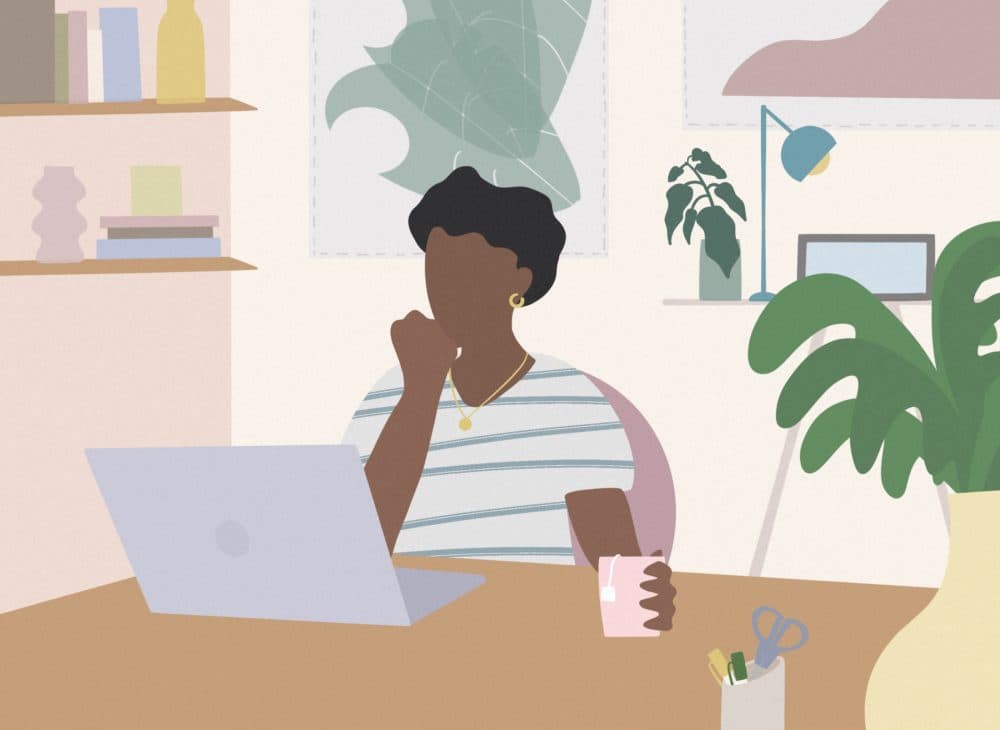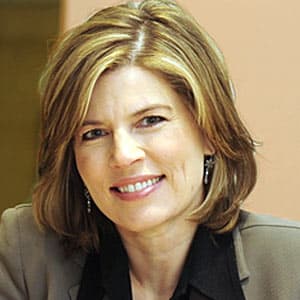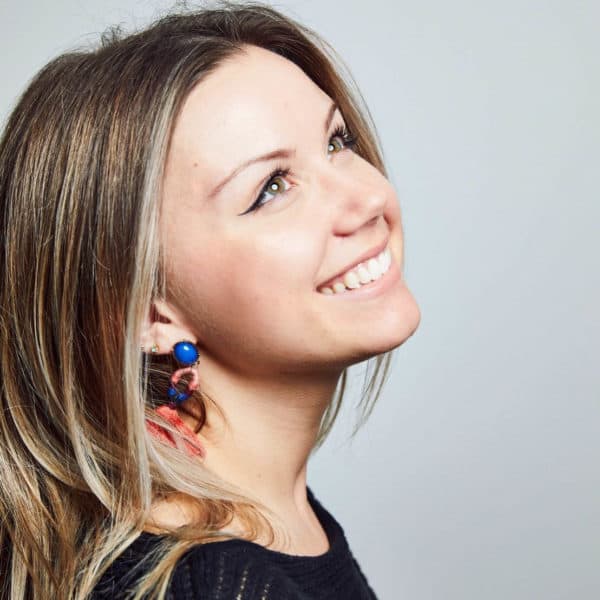Advertisement
You are not your job: Writer Arthur Brooks on why careers shouldn't dictate your identity
Resume
Editor's Note: This segment was rebroadcast on August 12, 2022. That audio is available here.
Penny Wrenn has been grappling with an identity crisis.
After being laid off at the beginning of the pandemic, the 44-year-old from Lancaster, Pennsylvania, feels like “a walking dead person” without a job title to lay claim to.
Until recently, Wrenn took on the task of caretaker for her elderly father, a role she says she leaned into. But her dad died not long ago and she hasn’t yet found work, leaving her void of a personal identity, she says.
“My profession has determined my identity for more years than I can count,” the former journalist and content marketer says.
The pandemic has changed many aspects of how the world operates, including work.
Like for Wrenn, perhaps it prompted you to reflect on your career, such as how much of your identity — the way you see yourself and the way others see you — is dictated by your profession.
Arthur Brooks, a contributing writer for The Atlantic and Harvard University professor, wants people to deeply think about how much of your identity is determined by your job — and potentially make a shift.
In his piece “A Profession is Not a Personality,” part of his weekly column “How to Build a Life,” he writes how Americans tend to glorify being driven and ambitious.
These days, it’s easier than ever to let work trump everything else in life. He says the case for solidifying a better work/life balance is simple — happiness.
Brooks, who teaches a Harvard class called Leadership in Happiness, says there are many people who have defined themselves by their work and find as they approach their 40s and 50s that they’ve “not been fully alive,” he says. That’s because the key to happiness is investing in non-transactional relationships.
“If you are a human that's defined by work, if you objectify yourself with respect to your job, you're frankly going to miss most of the important things that can make you happy,” he says.
He writes that striving for professional success — and simultaneously expecting both satisfaction and happiness from that success — is “setting us up for a life of joyless accomplishment and unreachable goals followed by the tragedy of inevitable decline.”
It’s clear in the research, he says, that being rewarded in your job, like receiving monetary or title promotions, incentivizes you to do more and more. That cycle prompts workers to weigh the benefits and costs of one more hour at work compared to one extra hour at home. And Brooks warns there are life sacrifices that come with that.
“If you are a human that's defined by work, if you objectify yourself with respect to your job, you're frankly going to miss most of the important things that can make you happy."
Arthur Brooks
“I meet people all the time who say ‘I don't feel like I really had a good marriage. I don't think I really knew my kids or I don't have very many friendships,’ ” he says. “As a matter of fact, one of the things that I find for people who are real workaholics and addicted to success is that they don't have any real friendships. You can say that they have a lot of ‘deal friends’ but no real friends.”
Brooks suggests asking yourself: Is your job the biggest part of your identity? Is it the way you introduce yourself? Do you have trouble imagining being happy if you were to lose your job or career?
If the answer is yes, it’s “time to reassess,” he says.
Your older self will thank you for it, he says, because happiness in the second half of life is linked to the investments made during earlier years. Luckily, there’s no wrong time to redirect life and start focusing more on the four sources where we need to deposit time and energy into every day: our spiritual or philosophical life, family, friendships and meaningful work that gives back.
Sometimes there are more opportunities in one category over the other, he says. For example, if you’re out of the workforce and find yourself struggling to figure out your identity, Brooks says to invest in those other three areas. This will help guide you when you ask yourself: “Who am I?”
Americans live in a time of high costs for housing, health care and education, among others. Economists have found that many Americans are working more than in years past, and for so many, it’s not a choice — it’s an economic necessity.
What is a choice is how we look at ourselves, Brooks says. Defining oneself as a work machine and deriving self-worth from that can actually be “a recipe for dissatisfaction, even misery,” he says.
How to separate your work from your identity
Former teacher Emily Taylor of Leominster, Massachusetts, says she experienced an identity dilemma when she left to work at a state education agency.
“Being a teacher was so much a part of who I was,” the 38 year old says. “It took a lot of meditation and self reflection to realize I am much more than my job.”
Now, Taylor says she feels even more passionate about her work and doesn’t define her career as the most important aspect of herself.
Brooks says it’s possible for others to follow in Taylor’s footsteps. First, he says to “make rest” by staying away from your job on days you are not working. Think of time off as sacred, he says. It might be tempting to check your email on a Sunday night before your Monday morning shift, but you need specific time set aside to engage in activities other than work, he says.
Prioritize real friends over “deal friends” who may view you as an economic tool, he says.
If you need a momentous change, Brooks suggests changing up your career entirely. He personally starts over every 10 years or so.
“I'm on my fourth completely different career now,” he says. “I was the CEO of a think tank in Washington, D.C., and I walked away after 10 years because I didn't want to be my job. It wasn't good for them and it wasn't good for me.”
For people working multiple jobs to make ends meet, reinventing themselves might not be an option. Brooks acknowledges there is privilege associated with being able to switch careers on a dime.
Big or small changes, the key is to maintain separation of work from home, he says, efforts he’s seen embodied in working-class people.
“I've met a lot of people who are in these categories of people who are paying the rent from month to month, really working people, and they have an extremely healthy relationship with their jobs,” he says.
Brooks spent a decade of his life as president of the conservative-leaning American Enterprise Institute. Many conservatives have pushed back against the idea of raising the minimum wage, making college affordable and expanding health care access. But folks across the aisle tend to argue expanding the social safety net makes it easier for people to work less and therefore define themselves less by their jobs.
He says there are ways to find consensus on the issue.
“I think that there's a lot of ways that we can work together, where iron can sharpen iron between the preference that a lot of progressives have for people on the margins of society in the way that a lot of conservatives think about an entrepreneurial economy,” he says. “These shouldn't be incompatibilities.”
There are many jobs where people can express their passion and seek purpose through their careers. Yes, it’s important to care deeply about your work, Brooks says, because it answers the vital question: “Why do I do what I do?”
The throughline of your life should be the “why” you do what you do, he says, as opposed to basing your identity on the “what” you do, like a job title, he says.
“If you find as a public defender or as an activist or advocate or anything, no matter what your political views are or what your ideology is, if you're dedicated to the why of lifting people up and bringing them together,” he says, “then there's a million ways that you can do it.”
Ciku Theuri produced and edited this interview for broadcast with Jill Ryan. Serena McMahon adapted it for the web.
This segment aired on October 5, 2021.

